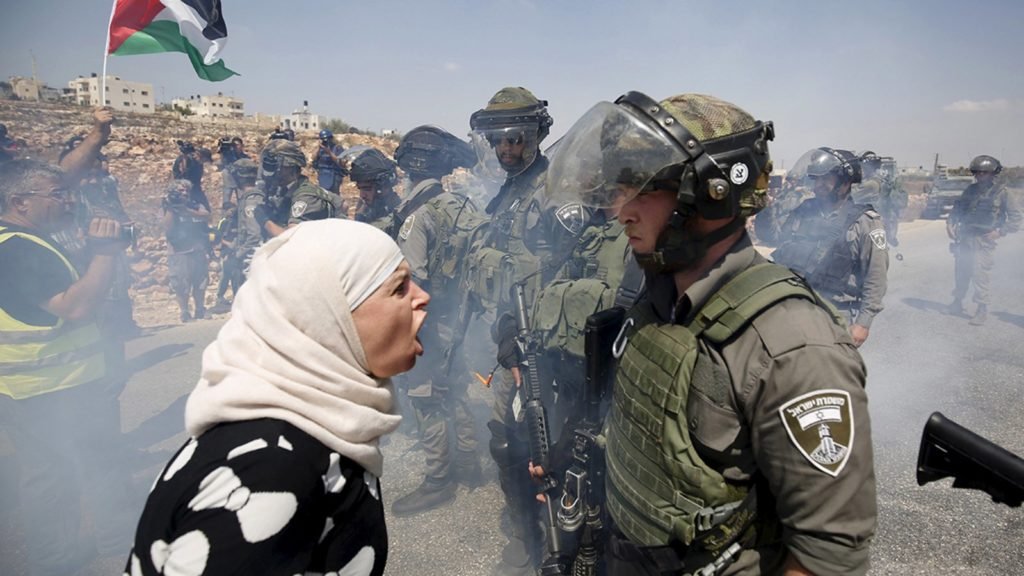
When examining the world’s most complicated and historical geopolitical disputes, there is no doubt that the Israel-Palestine conflict is one of the most prominent and contemporary examples of this sort. This conflict, originating in the early 1900s, combined elements of imperialism, ideologies, and religion to create a struggle now defined by marginalization, securitization, and self-determination.
As an ongoing conflict for over 100 years, there is much at stake for both Israelis and Palestinians. For Jewish Israelis, their historical oppression culminated in the dire need for an independent Jewish state, a state in which they could prosper and heal. For Palestinians, a growing sense of nationalism, tainted by Jewish-imposed imperialism and marginalization, made their need for an independent state more pressing than ever.
Both on the same piece of land.
These seemingly irreconcilable needs have generated the zero-sum conflict we see today, a conflict in which the gain of one is the loss of the other. These gains and losses are not exactly quantifiable, yet in the context of this conflict, it is clear to see that when Jewish Israelis have gained prosperity, Palestinians have lost basic human rights, something that no person should be deprived of. And it is this inexcusable tradeoff that highlights the need for a solution to the Israel-Palestine conflict.
The two most common potential solutions to the Israel-Palestine conflict are the two-state and one-state solutions, and frankly, they are both looking increasingly impossible.
The two-state solution is looking increasingly impossible because…
… the 1947 UN Partition Plan borders that set out clear lines for a Palestinian and Israeli state have become practically erased with an influx of Jewish settlers into the West Bank over the past 50+ years.
… over the course of his presidency, Benjamin Netanyahu has sympathized with far-right nationalists who yearn for a messianic vision of a Jewish ethnostate state stretching from the Mediterranean Sea to the Jordan River.
… Ben Yvir, who idolizes an extremist called Baruch Goldstein known for killing 29 Palestinians in 1994 and advocates for the expulsion of Arab citizens of Israel if they are disloyal to the country, is the leader of a prominent political party in the Knesset.
… the Palestinian Authority under Mahmoud Abbas is paralyzed, undemocratic, and does not have the best interest of its citizens at heart.
The one-state solution is looking increasingly impossible because…
… rising nationalist sentiments from both Jewish Israelis and Palestinians would create an environment in which a shared flag, school history textbook, much less the name of this hypothetical state would never be agreed upon.
… for Jewish Israelis, the justified trauma and scars arising from the Holocaust are still fresh, therefore, the idea of not having their own “Jewish State” would be incomprehensible and terrifying for some.
… perpetual oppression, marginalization, and discrimination have pushed 66% of Palestinians in the West Bank into supporting the reclamation of historic Palestine in its entirety.
… it is unrealistic to believe that far-right Jewish-Israelis, nationalist Palestinians, Arab-Israelis, Zionists, and supporters of Sharia Law and Hamas will ever be able to live in peaceful coexistence under the name of one state.
Is a solution needed to solve this incredibly complicated situation? Yes. Will this be achieved anytime soon? Probably not. What needs to happen then? Our discussion of solutions to the Israel-Palestine problem is premature in my opinion. This is my reasoning: When a person is getting beaten up, the victim cannot be expected to rationalize, much less have a respectful and intellectual conversation, when they are still getting punches to the face. Only once the violence ends will the two parties be able to heal, discuss, and come to a logical solution.
Using this metaphor, anyone in Israel who is serious about living in peaceful coexistence with Palestinians must realize that their country is the person beating up the other guy. Yes, the other guy will throw in the occasional punch just as Palestine does, yet this highlights the disproportionality that defines the Israel-Palestine conflict. Just in the terrible violence that has transpired in the past few weeks, 139 Palestinians, compared to 8 Israelis have been killed.
The violence must end, and only then will we have the conditions necessary to implement a solution that will create an equitable and sustainable environment for Palestinians and Israelis alike.






